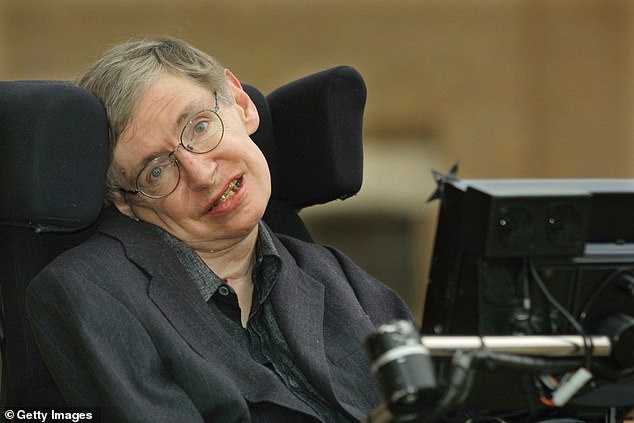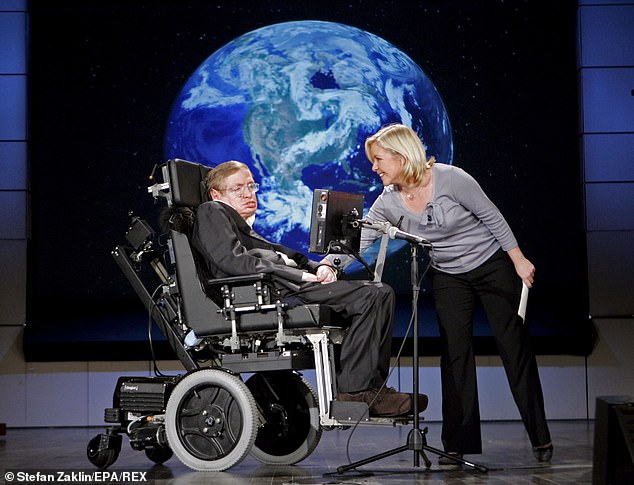British scientists give boost to hopes of living with motor neuron disease with new kidney drugs
>
EXCLUSIVE: British scientists give major boost to hopes of living with motor neurone disease by using new kidney drugs
- Trial shows kidney cancer treatment may slow motor neurone disease spread
- The treatment increases survival chances by 70 per cent, scientists have found
- It’s first new drug for MND, suffered by Stephen Hawking, for nearly 30 years
<!–
<!–
<!–<!–
<!–
<!–
<!–
British scientists have given a major boost to hopes of living longer with motor neurone disease, the degenerative illness that most famously afflicted physicist Stephen Hawking.
A trial shows that injections of a protein used to treat kidney cancer may slow MND’s spread and increase survival chances by 70 per cent.
‘These remarkable results are a real breakthrough,’ said Timothy Tree, Professor of Immune Regulation and Immunotherapy at King’s College, London.
‘They could lead to big changes in treatment options for patients living with this devastating disease.’

A trial shows that injections of a protein used to treat kidney cancer may slow MND’s spread and increase survival chances by 70 per cent. It is the first new treatment for the disease for nearly 30 years


The illness affects about 6,000 people in Britain, weakening muscles in the body by affecting motor neurons in the brain. Scientist Stephen Hawking lived with MND for 55 years (file image)
The 21-month study in Britain and France shows a 70 per cent reduction in risk of dying for those taking the drug, compared to those patients given a placebo.
It is the first new drug for MND, which is incurable, in nearly 30 years.
The illness affects about 6,000 people in Britain, weakening muscles in the body by affecting motor neurons in the brain.
Malnutrition and dehydration due to difficulty swallowing make it harder to stay healthy and death generally follows respiratory failure.
Prof Hawking was given two years to live when diagnosed at 21, but astonished medics by living to 76, dying in 2018.
Most sufferers die within three to five years of diagnosis. It killed Scottish rugby great Doddie Weir, 52, in November, comedian Ronnie Corbett and actor David Niven.
Former rugby league player Rob Burrow was diagnosed in December 2019 and is now devoted to raising awareness of MND.
The new drug is made from the protein Interleukin-2 (IL-2), which is found in the immune system.
Neurologist Professor Nigel Leigh of Brighton Medical School, who led the trial with Gilbert Bensimon in France, said: ‘The initial data shows a very good response. We’re very encouraged.’
Professor Ammar Al-Chalabi, who led the King’s College London team in the trial, said: ‘Now can we lengthen survival and possibly slow the disease for a long period of time?’
Patients were recruited to the trial soon after MND diagnosis to test the treatment at an early stage.
The study found that a low dose of IL-2 increased the number of certain immune cells in the blood able to fight inflammatory infection.
Although the cause of MND is not fully understood, it is known that inflammatory mechanisms influence motor neuron damage in the brain and spinal cord.
